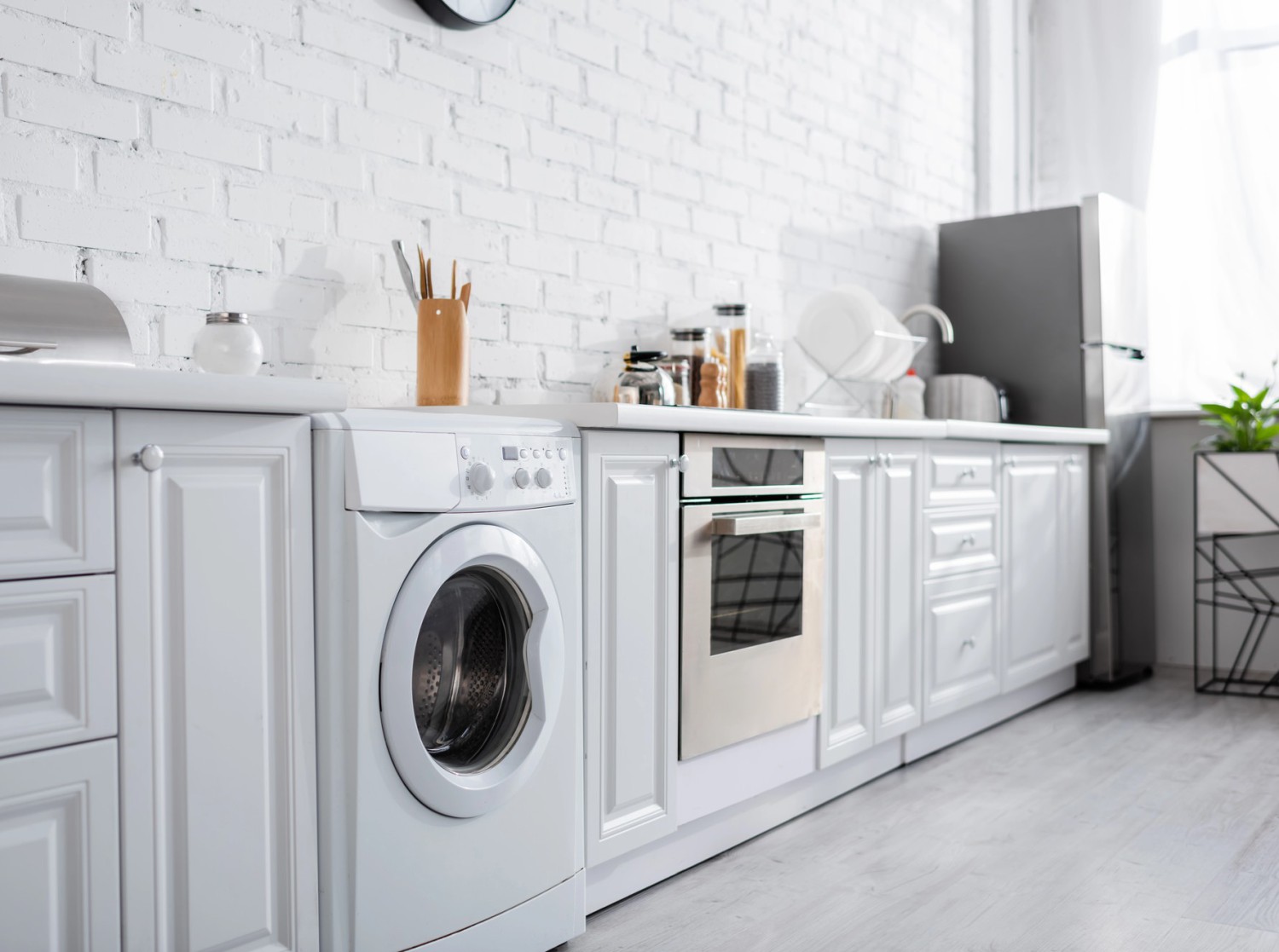
Delaying having to replace your appliances as much as possible will save you a lot of money! From a fridge on the fritz to a washer that kicks the bucket, an ounce of prevention is worth a pound of cure!
Don’t know how? Follow our guide.
1. Clean Them More Regularly
Dust, crumbs, and grease can damage your appliances in addition to making them less energy efficient.
- Wipe down every surface with a damp cloth.
- Clean your range hood’s filters.
- Empty your dishwasher’s filter. Many people assume it’s self-cleaning. Not true! If the filter becomes clogged with food residue, the appliance can’t run well, odours appear, and the pump will wear out prematurely.
- Defrost the freezer as needed.
- Be aware that using too much detergent in the laundry machine can clog it up and leave residue on clothes, especially HE (high efficiency) models. Adding extra detergent whenever you do a load is therefore not an effective way to keep this appliance clean.
2. Inspect the Gaskets
Your fridge’s, freezer’s, and dishwasher’s gaskets keep air from escaping and from getting in. If they’re dirty or cracked, they can’t properly do their job, overworking the motor and increasing your power bill. You should likewise inspect your laundry machine’s rubber gasket.
- Clean all the gaskets regularly with soapy water and replace them as soon as they show signs of wear.
- Try this tip for testing your fridge’s seal: place a sheet of paper between the door and the opening; if it slips out very easily when the door is closed, then you need to clean or change the gasket.
3. Avoid Overloading Your Appliances
Putting as many dishes as possible in the dishwasher to “save a load” is tempting, but it’s a very bad idea. The dishwasher can’t clean the dishes as effectively and the motor will wear out prematurely.
And don’t overfill the refrigerator either by piling food on the shelves: air must circulate freely to keep the engine from overheating.
4. Read the Owner’s Handbook!
This may seem obvious, but reading the manufacturer’s maintenance guide can really help you prevent certain issues.
Each appliance has its quirks: recommended cycles, products to avoid, parts to clean. You may be surprised to learn the following facts.
- Refrigerator: The Condenser’s Coils - Handbooks generally recommend cleaning the condenser’s coils (at the back or below the fridge) once to twice a year. These coils are dust and pet hair magnets, forcing the motor to work harder, which may in turn raise your electricity bill.
- Washer: Leaving the Door Ajar - To prevent mould and odours, owner’s manuals often recommend leaving the door open after each cycle, especially for front-loading machines. Otherwise, moisture stays trapped inside, creating a breeding ground for bacteria.
Many people think they can just run a “tub clean” cycle, but letting the inside fully air dry is the best form of prevention.
- Dryer: The Vent Duct - Guides recommend checking the vent duct (the large flexible conduit at the back) at least once a year. Accumulating lint can block the vent, lengthen drying cycles, wear out the dryer… and increase the risk of fires.
Clearing out the lint trap isn’t enough!
5. Make the Most of Their Special Settings
As we’ve just mentioned: reading the owner’s manual will provide you with vital information on how to optimize your appliances’ use and maybe even extend their lifespan. For example,
- some refrigerators have a “vacation” mode to save energy while you’re away;
- the dishwasher’s “rinse-only” cycle can prevent food residue on dishes from sticking if you don’t run a full cycle right away.
6. Keep an Eye Out for Signs of Wear
An odd noise, a door that won’t close all the way, the smell of burning—none of this is normal. Act quickly to prevent the appliance from breaking down and having to pay for costly repairs. Don’t wait for it to completely stop working!
Get the faulty part fixed or replaced as soon as you can.
7. Have It Fixed Instead of Throwing It Out
Nowadays, we quickly discard and replace our broken belongings; and yet, as mentioned above, many minor malfunctions are repairable.
Before you run to the store to purchase a new appliance, find out if replacement parts are available or contact a technician. Sometimes all you need is a new fuse or gasket to extend your appliance’s life a few more years.
8. Ensure They’re Stable
A tilting fridge or a wobbly washer can cause noise, leaks, or vibrations that will damage the motor or the floor.
By paying careful attention and carrying out minimal maintenance, you can ensure your house or condo stays comfortable for longer while making a real difference for the planet. After all, extending the life of our appliances also means producing less waste!

